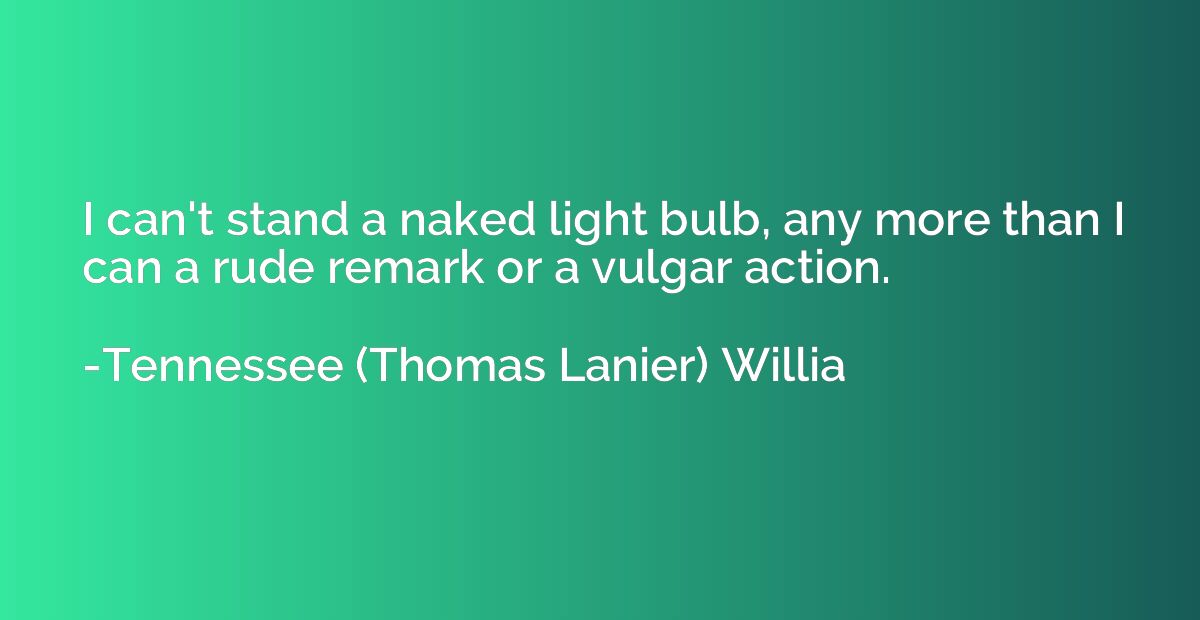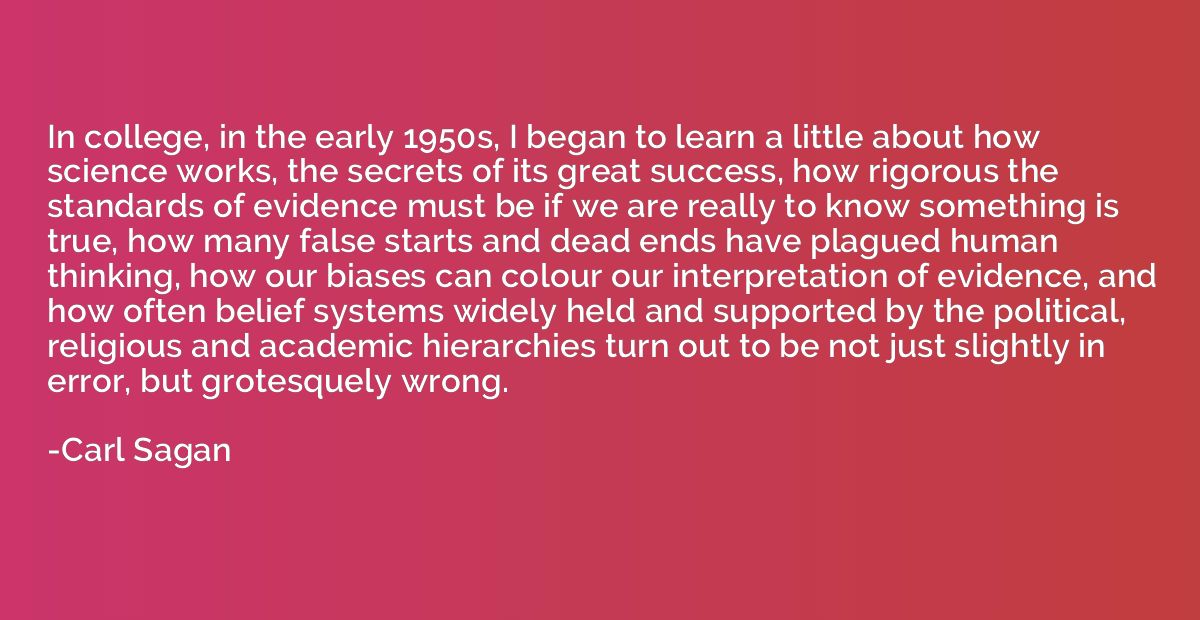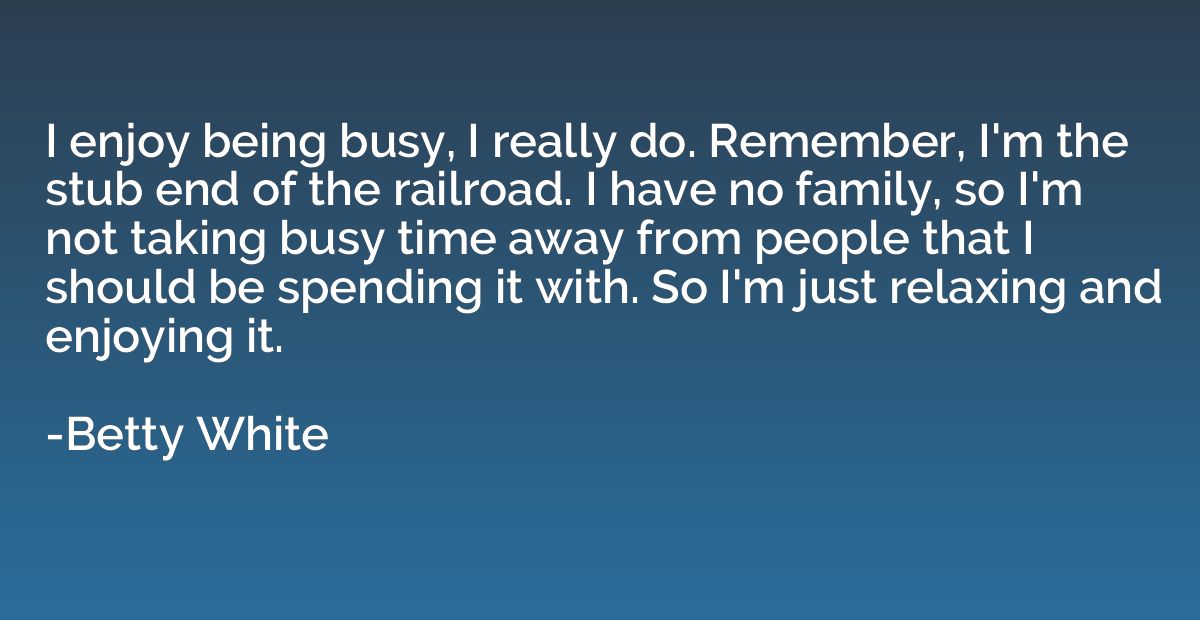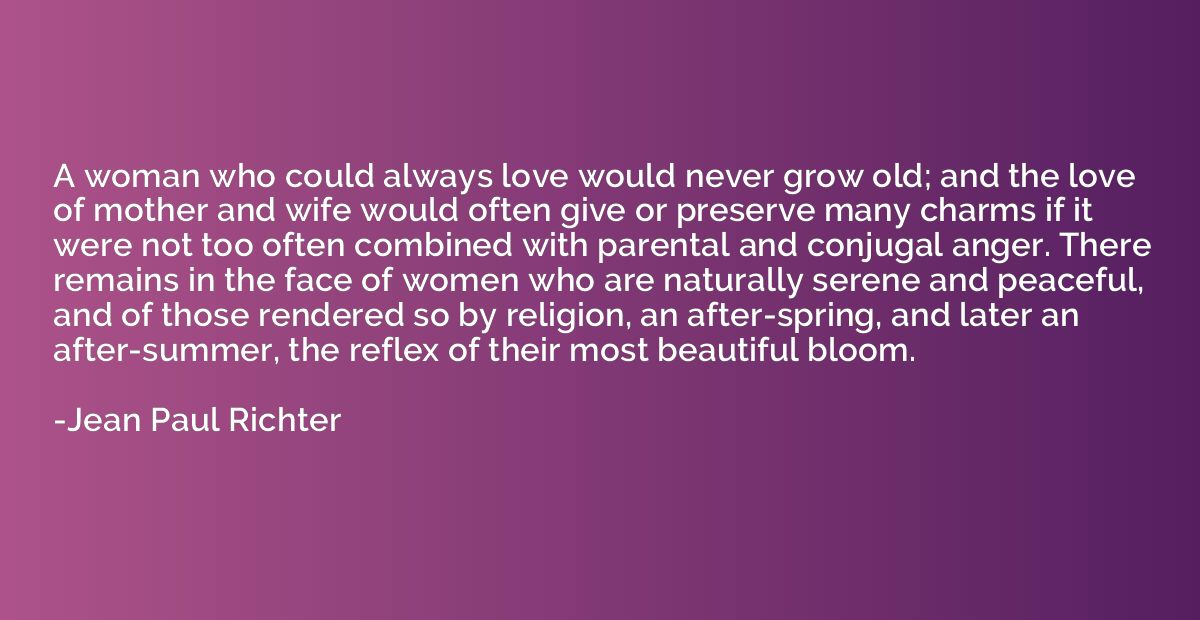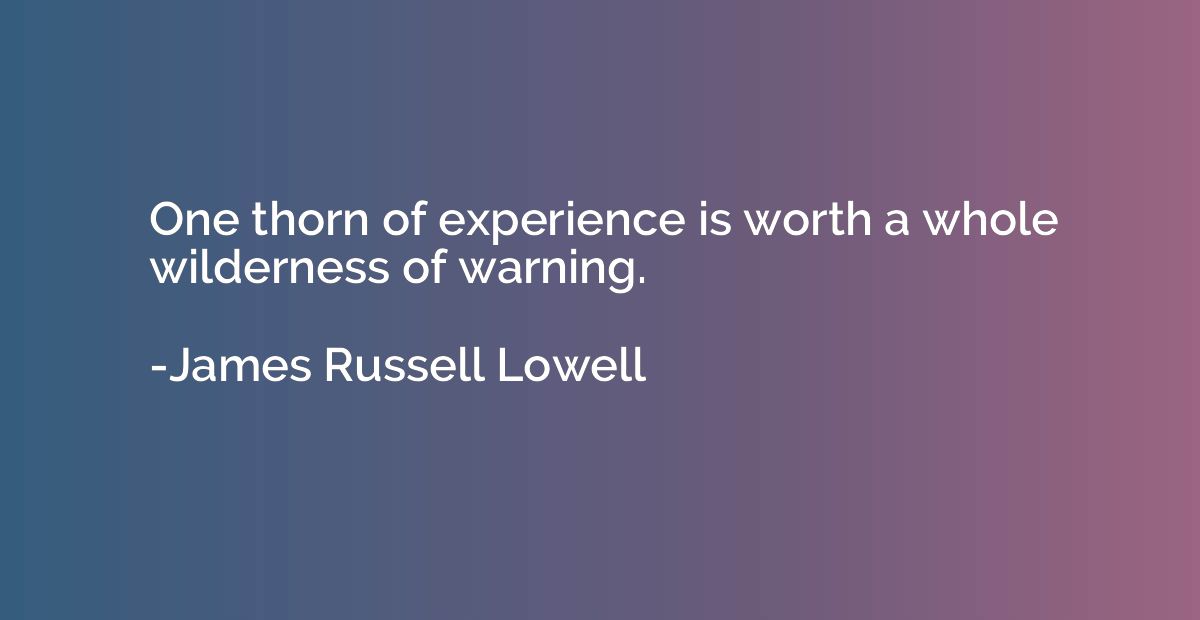Quote by Thomas Paine, The American Crisi
I once felt all that kind of anger, which a man ought to feel, against the mean principles that are held by the Tories: a noted one, who kept a tavern at Amboy, was standing at his door, with as pretty a child in his hand, about eight or nine years old, as I ever saw, and after speaking his mind as freely as he thought was prudent, finished with this unfatherly expression, Well! give me peace in my day. Not a man lives on the continent but fully believes that a separation must some time or other finally take place, and a generous parent should have said, If there must be trouble, let it be in my day, that my child may have peace; and this single reflection, well applied, is sufficient to awaken every man to duty.
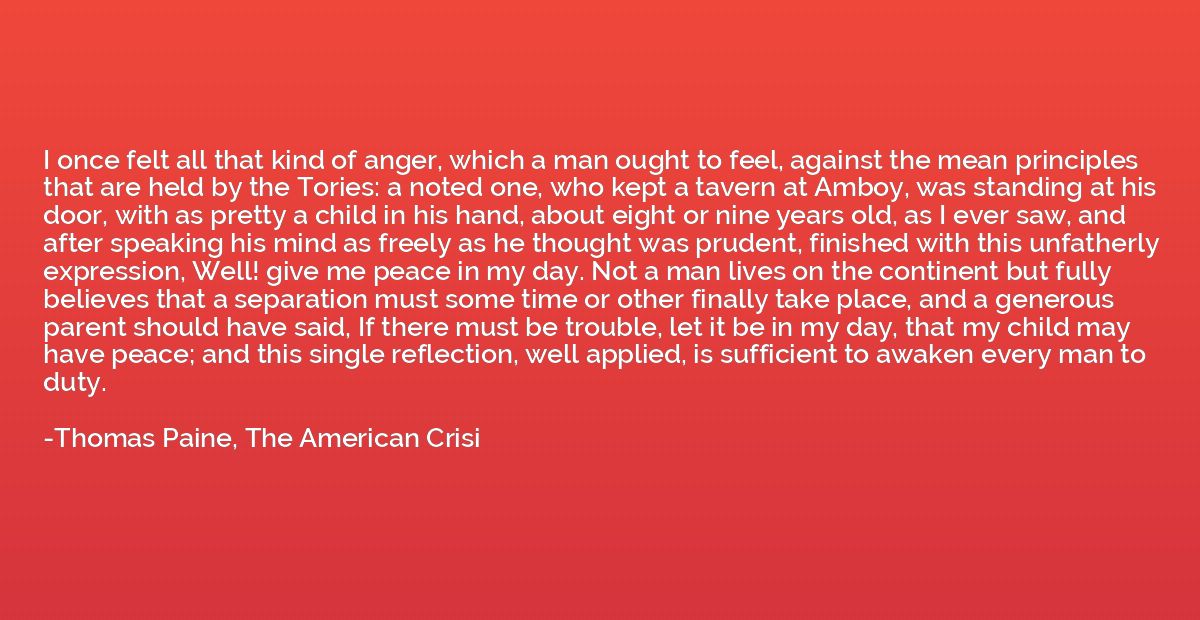
Summary
The quote emphasizes the speaker's outrage towards the Tories and their selfishness in seeking their own peace at the expense of future generations. The speaker recalls a moment where a Tory, despite acknowledging the inevitability of separation from England, selfishly prioritizes his own tranquility in the present. The speaker criticizes this mindset and argues that a responsible and caring parent should be willing to confront and endure trouble so that their children can ultimately enjoy a lasting peace. The quote intends to remind individuals of their duty to prioritize the well-being of future generations rather than prioritizing their own short-term comfort.




